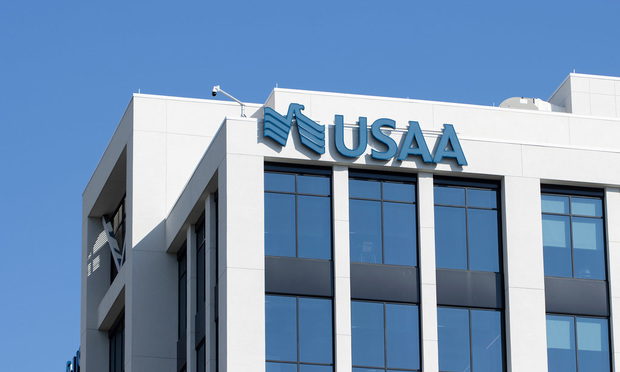Entitled. Narcissistic. Pompous.
However older generations prefer to describe millennials, they can add one more thing to the list: uninsured.
Millennials have been getting flak from almost every side, over everything from their decisions not to purchase health insurance to their poor judgment in getting fine art degrees. Now the insurance industry is worried that the most populous generation in America happens to also be the most underinsured.
Generation “me”
There has never been a clear cut time frame for when the millennial generation started – most research institutions that study them broadly define millennials as being born anytime between 1980 and 2004 – and they have jumped around from definition to definition over the past decade.
But where researchers can't agree on a jumping off point for defining millennials, they do agree on one thing: they've been spoiled.
“What is true about this generation is that they were children during economic prosperity and their parents have truly coddled them and shielded them from a harsh reality,” says Dr. Kit Yarrow, a consumer psychologist and author of the book “Decoding the New Consumer Mind.”
“Their blinders are like double wide,” she says.
Yarrow told PC360 that, whereas all generations in their 20s have experienced being 10-feet-tall-and-bulletproof, millennials are unique in that they are the only ones who have experienced this en masse.
Insurance? Who needs it?
Purchasing patterns for insurance by millennials reflect that fact, as only 64% of them have car insurance, 10% have homeowners insurance and 13% have renters insurance, according to a survey conducted by the Princeton Survey Research Associates International.
But for millennials that have purchased homeowners insurance, they've become increasingly critical of their policies and insurance carriers, more so than older generations, according to a new report released on Sept. 18 by J.D. Power.
A part of this is a value shift in purchasing and the generation's interactions with large corporations that, as a whole, millennials largely distrust, according to a report released this year by the public relations firm, Edelman.
“They just don't tend to trust big companies,” Laura Adams, senior insurance analyst for Insurancequotes.com, tells PC360.
Adams says that millennials, unlike other generations, actively know when they're being advertised to, and as a result are more likely to not buy the product that's being pitched.
“This is a generation that doesn't like to be advertised to. That's the main challenge,” says Adams. “They have a take on advertising as an invasion of their time and their life. They want to discover things themselves and find answers to solutions, but a lot of times people don't know enough to find the answers they need.”
And therein lays the problem for insurance companies. According to Pew Research Center, millennials may be the most educated generation in American history, with over 34% holding at least a bachelor's degree, but they tend to know very little about the insurance industry, how it operates or even basic costs of insurance policies. And they aren't listening to the industry that's trying to educate them.
In a poll conducted by the Griffith Insurance Education Foundation, only 5% of students polled were very familiar with the insurance industry. Compared to 80% of students who said they knew nothing about the industry at all.
“There are some deeper issues there which make them overestimate the cost,” says Adams who also conducted studies on millennials and their knowledge of insurance pricing. “When we asked 'why don't you have renters insurance' and asked about cost, and when we ask them to estimate it, we find they give huge numbers more like a home insurance policy. They really don't know enough about the product.”
Insurers need to step up
The solution, it seems, is for companies that need to harness millennials to be more transparent and technologically savvy than they have ever been before. According to Yarrow, insurance companies need to be more, what she calls “technovative.”
“The ones that can jump ahead of the path will be more innovative and technologically advanced, and those who are most transparent and honest instead of spouting legalese,” Yarrow says.
J.D. Power echoed this in a report released this year that showed millennials were more likely to buy from auto insurance providers that had better navigation on their websites and were more transparent about underwriting policies.
Broader economic issues at play
What's unknown is when millennials will make the shift in purchasing insurance. The generation is more likely to stay home after college, building savings and maintaining their creature comforts, and they are more likely to get married and have kids much later in life. This socio-economic shift from previous generations has delayed millennials from thinking about their insurance needs, says Adams.
But that doesn't mean millennials are any less productive in their lives. If anything, millennials tend to want a more Google-style approach to work, favoring life-work balance and more independence in their jobs, according to a NextGen study conducted by Price Waterhouse Coopers (PWC).
And the group tends to lean more toward urban living, in places where cars are less needed and renting is more common, pushing the insurance burden on car-share companies like ZipCar.
That value change may have older generations shaking their sticks at millennials, but it's not their fault and definitely shouldn't be worrisome, says Yarrow.
“Part of it is just being young. This generation is not defective, they were just fed a lot of messages that set them up for disappointment,” says Yarrow. “In ten years, they might look really solid and distinguished. They're going to live till they're 120, let them have a few extra years to figure it out.”
Want to continue reading?
Become a Free PropertyCasualty360 Digital Reader
Your access to unlimited PropertyCasualty360 content isn’t changing.
Once you are an ALM digital member, you’ll receive:
- Breaking insurance news and analysis, on-site and via our newsletters and custom alerts
- Weekly Insurance Speak podcast featuring exclusive interviews with industry leaders
- Educational webcasts, white papers, and ebooks from industry thought leaders
- Critical converage of the employee benefits and financial advisory markets on our other ALM sites, BenefitsPRO and ThinkAdvisor
Already have an account? Sign In Now
© 2025 ALM Global, LLC, All Rights Reserved. Request academic re-use from www.copyright.com. All other uses, submit a request to [email protected]. For more information visit Asset & Logo Licensing.








